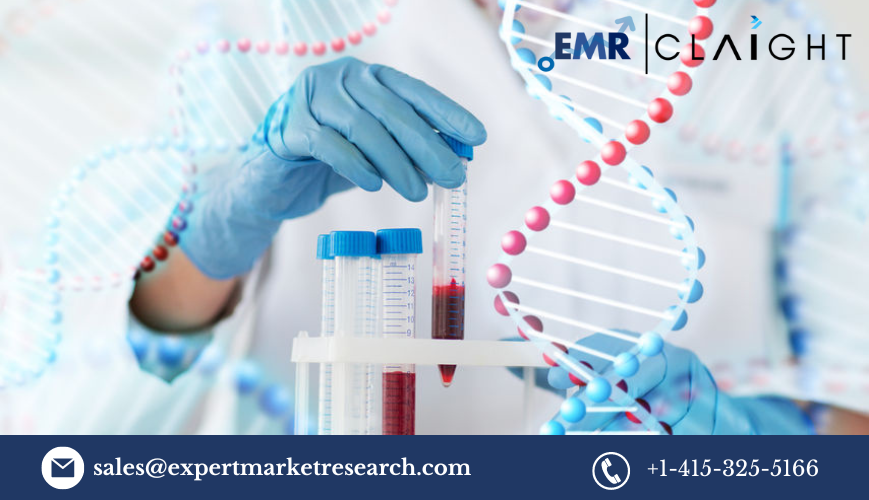The biological safety testing market is witnessing significant growth, driven by the rising prevalence of infectious diseases and advancements in biotechnology. Valued at USD 4.53 billion in 2023, the market is expected to reach USD 13.82 billion by 2032, growing at a compound annual growth rate (CAGR) of 13.2% during the forecast period. In this blog, we’ll delve into the key drivers, market dynamics, major players, and future prospects of the biological safety testing market.
Market Overview
Biological safety testing ensures the safety and efficacy of pharmaceutical and biotechnological products. These tests are crucial in detecting and preventing contamination by bacteria, viruses, and other harmful agents. The market is growing rapidly due to increasing regulatory requirements and the rising need for safe and effective therapeutics. Let’s explore the key factors contributing to this growth.
Key Drivers
- Increasing Prevalence of Infectious Diseases
- The global rise in infectious diseases such as COVID-19, Ebola, and Zika has underscored the importance of rigorous biological safety testing. Ensuring the safety of vaccines and therapeutics is paramount in combating these outbreaks, driving demand for advanced testing solutions.
- Regulatory Requirements
- Health authorities worldwide, including the FDA, EMA, and WHO, have stringent regulations for the safety and efficacy of biopharmaceutical products. Compliance with these regulations necessitates comprehensive biological safety testing, thereby fueling market growth.
- Technological Advancements
- Innovations in biotechnology, such as gene therapy, cell therapy, and personalized medicine, require sophisticated safety testing methods. Advances in automation, high-throughput screening, and molecular diagnostics are enhancing the efficiency and accuracy of these tests.
Market Segmentation
The biological safety testing market can be segmented based on product, test type, application, and end user.
- By Product
- Instruments: Advanced equipment used for conducting various safety tests.
- Services: Outsourced testing services provided by specialized laboratories.
- Kits and Reagents: Consumables required for conducting tests.
- By Test Type
- Sterility Testing: Ensures products are free from viable microorganisms.
- Bioburden Testing: Measures the microbial load in a product.
- Endotoxin Testing: Detects endotoxins that could cause fever and other adverse reactions.
- Cell Line Authentication and Characterization Tests: Verifies the identity and quality of cell lines used in research and production.
- Residual Host Contaminant Detection Tests: Identifies residual DNA or proteins from host cells.
- Adventitious Agent Detection Tests: Detects unintended viral or microbial contaminants.
- Other Tests: Includes mycoplasma testing, virus safety testing, etc.
- By Application
- Vaccine and Therapeutics Development: Ensuring the safety of new vaccines and therapeutics.
- Blood and Blood Products Testing: Testing blood and derivatives for safety.
- Cellular and Gene Therapy: Safety testing for innovative therapies.
- Tissue and Tissue Products Testing: Ensuring the safety of transplanted tissues.
- By End User
- Pharmaceutical and Biotechnology Companies: Major users conducting in-house testing or outsourcing.
- Contract Research Organizations (CROs): Providing specialized testing services.
- Academic and Research Institutes: Conducting research requiring safety testing.
- Other End Users: Including hospitals, diagnostic labs, etc.
Regional Analysis
The biological safety testing market spans several key regions, each with its unique dynamics:
- North America
- Leading the market due to advanced healthcare infrastructure, significant investments in biotechnology, and a strong regulatory framework. The U.S. is a major contributor, with numerous pharmaceutical companies and CROs.
- Europe
- Strong regulatory framework and increasing R&D activities contribute to market growth. Countries like Germany, the UK, and France are at the forefront due to their robust biopharmaceutical industries.
- Asia-Pacific
- Rapidly growing due to increasing healthcare expenditure, emerging biotechnological industries, and supportive government initiatives. Countries like China, Japan, and India are key markets due to their expanding pharmaceutical sectors.
- Latin America
- Growth driven by improving healthcare systems, rising awareness of safety testing, and increasing investments in biotechnology. Brazil and Mexico are significant contributors.
- Middle East & Africa
- Developing markets with growing healthcare investments and infrastructure. The UAE and South Africa are notable markets due to their improving healthcare sectors.
Competitive Landscape
The biological safety testing market is highly competitive, with key players focusing on strategic collaborations, innovations, and investments. Major companies in the market include:
- Avance Biosciences: Specializes in genomic and biological safety testing services.
- Cytovance Biologics: Provides comprehensive biological testing and manufacturing services.
- Eurofins Scientific: A global leader in testing services, including biological safety testing.
- Lonza: Offers a wide range of safety testing services and products.
- Merck KGaA: Known for its extensive portfolio of safety testing products and services.
- Promega Corporation: Provides innovative testing solutions for the life sciences industry.
- Thermo Fisher Scientific: A key player with a broad range of testing products and services.
- Toxikon: Specializes in preclinical safety testing services.
- WuXi AppTec: Offers a comprehensive suite of testing services.
- Biomerieux SA: Provides diagnostic solutions and safety testing services.
- Nelson Laboratories, LLC: Focuses on microbiological and analytical testing services.
- Almac Group: Offers a range of testing and manufacturing services.
- GenScript: Specializes in gene synthesis and safety testing services.
- InvivoGen: Provides innovative tools and reagents for biological safety testing.
- Maravai LifeScience: Focuses on providing advanced testing solutions for the life sciences industry.
These companies are actively involved in patent analysis, grants analysis, clinical trials, funding, and forming strategic partnerships to stay competitive in the market.
Future Outlook
The biological safety testing market is poised for robust growth, with emerging markets offering significant opportunities. Technological advancements and increased R&D activities will further drive the market. Companies must focus on innovation and strategic collaborations to capitalize on these growth opportunities.

